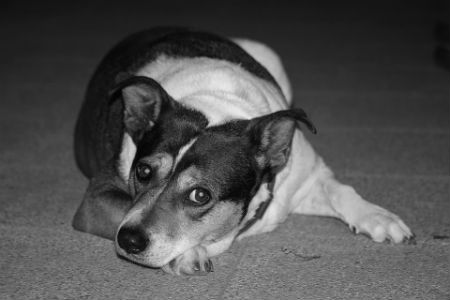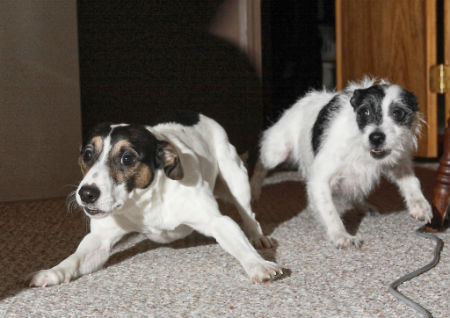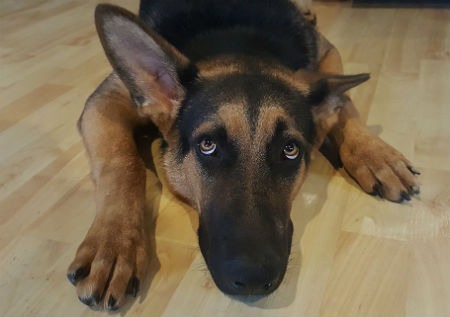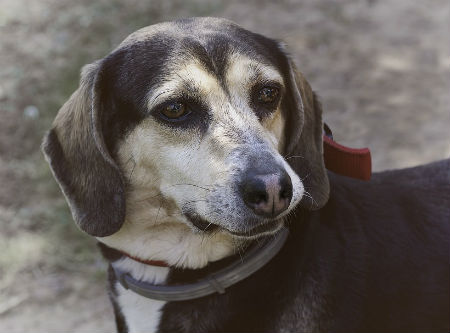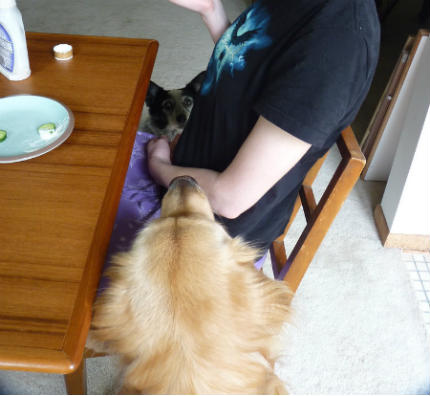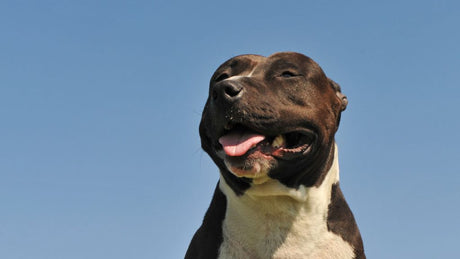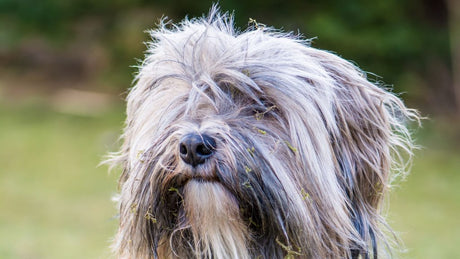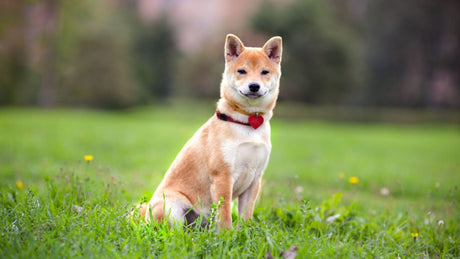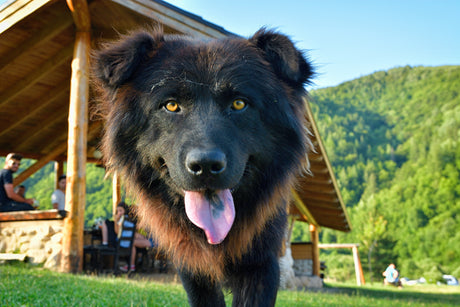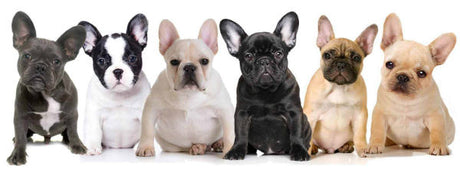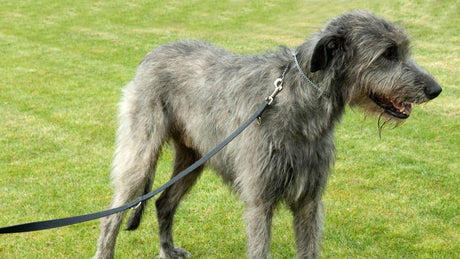Understanding our pets is increasingly important. In the absence of verbal communication, there are other ways in which pets, specifically dogs, can express themselves. Whether to show love, sadness, anger and even illnesses, such as anxiety.
Although it is not a condition that produces obvious symptoms in the dog, it is a disease that affects the psychological aspect of the animal. That is, it significantly influences their behavior. For this reason, knowing how to identify when a dog is affected by anxiety and, even more so, how to act in these cases, is essential for the canine to maintain a calm state of emotional health. Considering this, we have prepared the following article that will help you know
what to do if your dog suffers from anxiety and how to identify the symptoms of this condition.
Can dogs suffer from anxiety?
One of the most frequent questions that arise from people who have dogs as pets is whether they can really suffer from anxiety episodes. The answer to this question is completely affirmative. Dogs can frequently suffer from anxiety. These episodes can be continuous, if the dog faces situations that cause stress, or casual. Everything will depend on the context where the canine is usually found. Anxiety in dogs can be defined as a condition that appears when faced with an event or scenario that is difficult for the dog to adapt to, and that can worsen depending on the situation. In any case, the
causes of anxiety in dogs are usually very diverse and knowing them will help them to be avoided and we can anticipate this situation.
Causes of anxiety in dogs
Anxiety episodes in dogs can have multiple causes. However, some specific cases can cause an alteration in the dog's behavior and cause it to become anxious. Let's look at some of them:
very loud noises
Loud noises are one of the main causes of anxiety in dogs. These significantly alter the animal's behavior, causing nervousness and restlessness. The most common noises that cause disturbance in dogs are fireworks and lightning from electrical storms (lightning and thunder). Watching dogs nervously seek shelter in a safe place is a sign that these noises cause anxiety.
Separation or loneliness
Leaving our dog alone for a while can suddenly make him anxious. When you feel abandoned or neglected for a long time, that feeling transforms into a behavioral alteration linked to anxiety. If you do not dedicate enough time to the care or attention of your pets, it can make them feel alone and trigger an anxiety response in them. It is important to remember that, depending on the dog breed you have as a pet, the care needs can vary significantly. The ideal is to know in detail the care of the breed of dog we have and thus provide it appropriately. Articles where you can consult the care of specific breeds:
Trips
Long trips, by bus or car, can also cause anxiety in our dogs. The fact of traveling a path unknown to him can generate fear, which would end up turning into an episode of anxiety. To do this, we recommend that you consult the post on tips for traveling with your dog. Knowing how
to identify anxiety episodes is another important aspect if you want to anticipate this situation.
Symptoms of canine anxiety
The
manifestations of anxiety in dogs will depend largely on the factor that is causing this condition. For example, if it is anxiety caused by a loud noise, the dog may become nervous when immediately trying to seek shelter, it appears very restless, excess saliva in its mouth and moaning are some of the most characteristic symptoms. Paying attention to any of these symptoms will allow you to anticipate the anxiety episode and take some measures to counteract it. Especially if they are taking a walk, because upon hearing a loud noise, the dog may try to loosen the leash to run away in search of shelter.
Now, if it is separation anxiety, the symptoms are usually more pronounced, and can even
be confused with hyperactivity or bad behavior : they cause damage to the home, howl or bark incessantly, and even pass feces and urine inside the house. . This is because the dog feels loneliness from its owners and looks for ways to relieve that feeling that generates the anxiety of believing itself abandoned. This type of anxiety is usually more common in puppies, because their arrival in a new home, unknown to them, can cause fear and they may resist being left alone for the first few days. Addressing these aspects, taking care of the dog and adapting it to its new home with socialization practices is the best way to avoid it.
What to do to avoid anxiety in dogs?
Controlling external factors that generate anxiety, such as the noise of firecrackers or storms, is a quite complicated process, so avoiding it will not be entirely possible. However, trying to reduce the effects that these situations cause on our dog is very simple. Providing the canine with a feeling of protection and shelter will be enough for it to improve its anxiety.
If the cause is noise
If what triggers the anxiety episode in our dog is loud noise, then some aspects must be taken care of.
Mainly, if found on the street, the dog will look for somewhere to take refuge. This can be a risky situation, so it is advisable in this case to stop and try to distract their attention from the noise, letting them see that we are at their side. This will make you feel calmer and protected. If you are at home, the most viable solution is to close the windows so that the noise decreases and playing or distracting it with commands such as "come" or "sit", in addition to rewarding it when it complies with them, will make the dog forget what it was told. produces anxiety.
If the cause is loneliness
If the stress is caused by the feeling of abandonment, it is necessary to first consider the time you are dedicating to your pet and identify how much attention certain breeds of dogs require before adopting one.
Secondly, teaching him from a puppy to socialize and the things he should not do in his home will be appropriate so that the dog does not cause damage. Generally speaking, canine anxiety can be easily controlled in both adult dogs and puppies, taking into account the necessary considerations.
